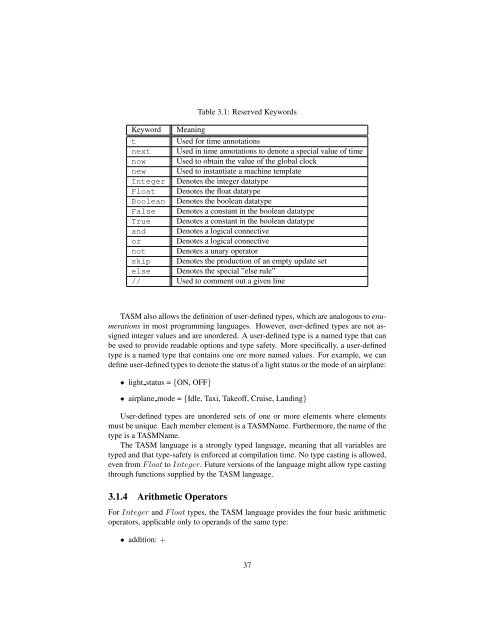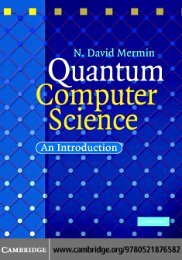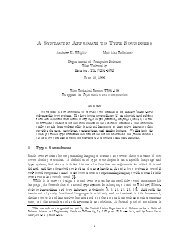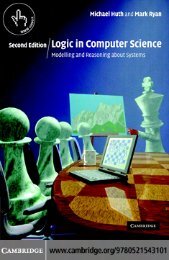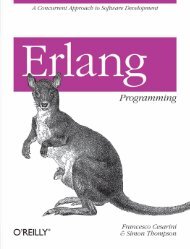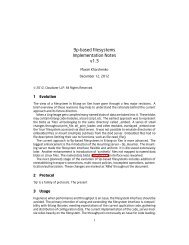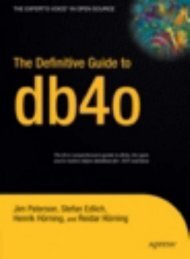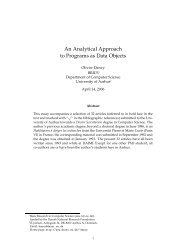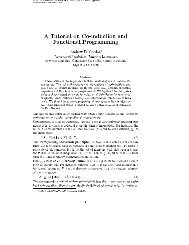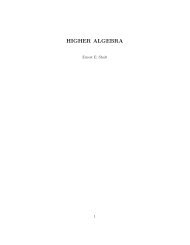The TASM Language Reference Manual Version 1.1 - Synrc
The TASM Language Reference Manual Version 1.1 - Synrc
The TASM Language Reference Manual Version 1.1 - Synrc
You also want an ePaper? Increase the reach of your titles
YUMPU automatically turns print PDFs into web optimized ePapers that Google loves.
Table 3.1: Reserved Keywords<br />
Keyword Meaning<br />
t<br />
Used for time annotations<br />
next Used in time annotations to denote a special value of time<br />
now Used to obtain the value of the global clock<br />
new Used to instantiate a machine template<br />
Integer Denotes the integer datatype<br />
Float Denotes the float datatype<br />
Boolean Denotes the boolean datatype<br />
False Denotes a constant in the boolean datatype<br />
True Denotes a constant in the boolean datatype<br />
and Denotes a logical connective<br />
or Denotes a logical connective<br />
not Denotes a unary operator<br />
skip Denotes the production of an empty update set<br />
else Denotes the special ”else rule”<br />
// Used to comment out a given line<br />
<strong>TASM</strong> also allows the definition of user-defined types, which are analogous to enumerations<br />
in most programming languages. However, user-defined types are not assigned<br />
integer values and are unordered. A user-defined type is a named type that can<br />
be used to provide readable options and type safety. More specifically, a user-defined<br />
type is a named type that contains one ore more named values. For example, we can<br />
define user-defined types to denote the status of a light status or the mode of an airplane:<br />
• light status = {ON, OFF}<br />
• airplane mode = {Idle, Taxi, Takeoff, Cruise, Landing}<br />
User-defined types are unordered sets of one or more elements where elements<br />
must be unique. Each member element is a <strong>TASM</strong>Name. Furthermore, the name of the<br />
type is a <strong>TASM</strong>Name.<br />
<strong>The</strong> <strong>TASM</strong> language is a strongly typed language, meaning that all variables are<br />
typed and that type-safety is enforced at compilation time. No type casting is allowed,<br />
even from F loat to Integer. Future versions of the language might allow type casting<br />
through functions supplied by the <strong>TASM</strong> language.<br />
3.1.4 Arithmetic Operators<br />
For Integer and F loat types, the <strong>TASM</strong> language provides the four basic arithmetic<br />
operators, applicable only to operands of the same type:<br />
• addition: +<br />
37


